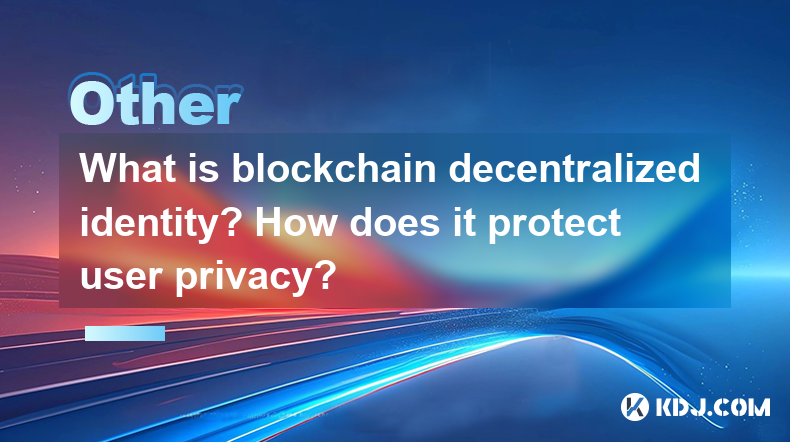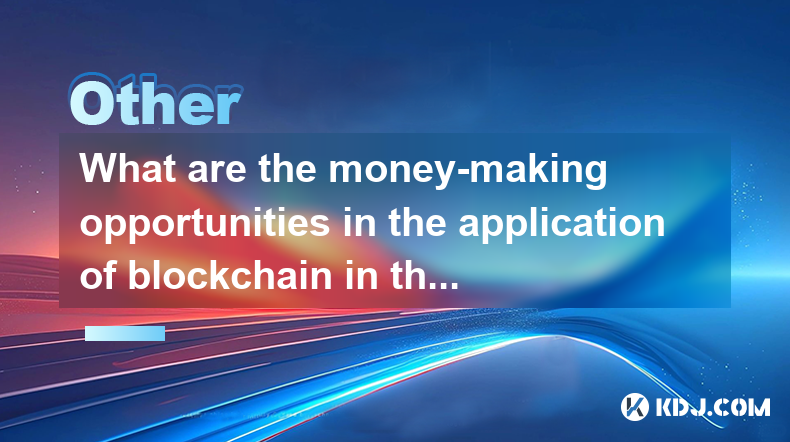-
 Bitcoin
Bitcoin $78,719.2006
-5.56% -
 Ethereum
Ethereum $1,583.1656
-12.44% -
 Tether USDt
Tether USDt $0.9998
0.01% -
 XRP
XRP $1.9088
-10.76% -
 BNB
BNB $560.9083
-5.15% -
 USDC
USDC $1.0004
0.04% -
 Solana
Solana $106.3174
-11.37% -
 Dogecoin
Dogecoin $0.1478
-12.16% -
 TRON
TRON $0.2291
-2.88% -
 Cardano
Cardano $0.5760
-11.29% -
 UNUS SED LEO
UNUS SED LEO $8.9099
-2.51% -
 Chainlink
Chainlink $11.2991
-11.88% -
 Toncoin
Toncoin $2.9368
-9.64% -
 Stellar
Stellar $0.2262
-10.37% -
 Shiba Inu
Shiba Inu $0.0...01137
-7.50% -
 Avalanche
Avalanche $16.0961
-7.76% -
 Sui
Sui $1.9171
-12.64% -
 Hedera
Hedera $0.1405
-12.85% -
 MANTRA
MANTRA $6.0521
-3.00% -
 Polkadot
Polkadot $3.6466
-7.23% -
 Bitcoin Cash
Bitcoin Cash $274.4163
-8.88% -
 Dai
Dai $1.0002
0.01% -
 Litecoin
Litecoin $70.2845
-14.71% -
 Ethena USDe
Ethena USDe $0.9989
-0.04% -
 Bitget Token
Bitget Token $4.1349
-7.18% -
 Pi
Pi $0.5928
-11.07% -
 Monero
Monero $201.4462
-6.45% -
 Hyperliquid
Hyperliquid $10.5838
-10.85% -
 Uniswap
Uniswap $5.1326
-12.02% -
 OKB
OKB $51.8936
-1.05%
What is blockchain decentralized identity? How does it protect user privacy?
Blockchain decentralized identity (DID) uses cryptography for enhanced user privacy and control over personal data, stored on a distributed ledger, but scalability and interoperability remain key challenges for widespread adoption.
Mar 01, 2025 at 05:07 pm

Key Points:
- Blockchain decentralized identity (DID) removes reliance on centralized authorities for identity verification.
- DID utilizes cryptographic techniques to enhance user privacy and control.
- Several methods exist for achieving privacy within a DID system, each with trade-offs.
- Interoperability and scalability remain challenges for widespread DID adoption.
What is Blockchain Decentralized Identity?
Blockchain decentralized identity (DID) represents a paradigm shift in how we manage and verify digital identities. Unlike traditional systems where a central authority (like a government or company) controls your identity data, DID empowers individuals with ownership and control over their digital identities. This is achieved by leveraging blockchain technology's inherent decentralization and security features. Your identity information is stored and managed on a distributed ledger, making it resistant to single points of failure and manipulation.
How Does Blockchain DID Work?
A DID system relies on cryptographic keys to prove identity. Each user possesses a unique public-private key pair. The public key acts as their identifier, while the private key allows them to control access to their identity data. Verification happens through cryptographic signatures, ensuring the authenticity and integrity of the information shared. This eliminates the need for a trusted third party to vouch for your identity.
How Does Blockchain DID Protect User Privacy?
Several mechanisms enhance privacy within a blockchain DID system. One key aspect is selective disclosure. Users can choose to reveal only the necessary information for a specific transaction or interaction, preserving the rest of their identity data. Zero-knowledge proofs allow users to prove their identity without revealing the underlying data. Homomorphic encryption enables computations to be performed on encrypted data without decryption, further protecting sensitive information.
Different Approaches to Privacy in DID
- Pseudonymity: Users operate under pseudonyms, linking different identities without revealing their true identities. This approach offers a balance between privacy and traceability.
- Attribute-Based Credentials: Users issue verifiable credentials containing specific attributes, allowing selective disclosure of information. This enables fine-grained control over shared data.
- Decentralized Identifiers (DIDs) with Anoncreds: This combines DIDs with anonymous credentials, providing strong privacy guarantees while still enabling verification.
Challenges and Considerations
While promising, blockchain DID faces challenges. Interoperability between different DID systems remains a significant hurdle. Scalability is another concern, as handling a large number of identities and transactions efficiently can be complex. User education and adoption are also crucial for widespread acceptance.
Addressing Scalability and Interoperability
Several projects are working on solutions to improve scalability and interoperability. Layer-2 scaling solutions can offload transactions from the main blockchain, improving efficiency. Standardization efforts, such as the W3C DID specification, aim to create a common framework for different DID systems to interact.
The Role of Decentralized Storage
Decentralized storage solutions, such as IPFS, complement DID systems by providing a secure and tamper-proof place to store identity data. This eliminates reliance on centralized cloud storage providers, further strengthening privacy.
Security Considerations
While blockchain enhances security, users still need to practice good security hygiene. Protecting their private keys is paramount, as compromise could lead to identity theft. Regular security audits and updates are crucial to mitigate potential vulnerabilities.
The Future of Blockchain DID
Blockchain DID has the potential to revolutionize identity management, offering enhanced privacy, security, and user control. As the technology matures and addresses its challenges, we can expect wider adoption across various sectors, including finance, healthcare, and governance.
Common Questions and Answers:
Q: Is my data truly anonymous with blockchain DID?
A: While blockchain DID offers enhanced privacy through techniques like pseudonymity and zero-knowledge proofs, complete anonymity is generally not guaranteed. Depending on the implementation, certain data might be traceable.
Q: How secure is my identity data on a blockchain?
A: Blockchain's inherent security features, such as cryptographic hashing and distributed consensus mechanisms, make it highly resistant to tampering and unauthorized access. However, the security of your DID also depends on the security of your private keys.
Q: What are the practical applications of blockchain DID?
A: Blockchain DID finds applications in various sectors, including secure digital identity verification for online services, streamlined KYC/AML processes for financial institutions, and verifiable credentials for educational institutions and employers.
Q: How does blockchain DID compare to traditional identity systems?
A: Unlike traditional centralized systems, blockchain DID puts users in control of their identity data. It enhances privacy, security, and interoperability while eliminating reliance on a single point of failure.
Q: What are the limitations of blockchain DID?
A: Current limitations include scalability issues, interoperability challenges, and the need for greater user awareness and adoption. The complexity of implementing and managing DID systems can also be a barrier.
Disclaimer:info@kdj.com
The information provided is not trading advice. kdj.com does not assume any responsibility for any investments made based on the information provided in this article. Cryptocurrencies are highly volatile and it is highly recommended that you invest with caution after thorough research!
If you believe that the content used on this website infringes your copyright, please contact us immediately (info@kdj.com) and we will delete it promptly.
- 4 Best Cryptos to Buy That Could Deliver High Potential Returns
- 2025-04-07 10:15:25
- Nexus Partners with Orochi Network to Deliver a Verifiable Internet on Web3
- 2025-04-07 10:15:25
- XRP Has Found Itself Back in the Spotlight as Market Momentum Builds
- 2025-04-07 10:10:11
- As we enter Q2 of 2025, the global crypto market finds itself steering a complex intersection of macroeconomic and geopolitical pressures.
- 2025-04-07 10:10:11
- Mutuum Finance (MUTM) Quietly Rallies 25% as It Enters the Next Phase of Its Presale
- 2025-04-07 10:05:12
- Intercontinental Exchange Inc. Has Announced That It Signed a Memorandum of Understanding with Circle Internet Group, Inc.
- 2025-04-07 10:05:12
Related knowledge

Is the ranking of Chinese blockchain apps real and reliable?
Apr 04,2025 at 09:01pm
The ranking of Chinese blockchain apps has become a topic of interest for many in the cryptocurrency community, as it provides insights into the popularity and adoption of blockchain technology within China. However, the reliability and authenticity of these rankings are often questioned. This article aims to delve into the factors that influence these ...

What are the future development trends of blockchain game development?
Apr 03,2025 at 05:00am
Blockchain technology has revolutionized various industries, and gaming is no exception. As we look to the future, several trends are set to shape the development of blockchain games. These trends not only promise to enhance the gaming experience but also to integrate blockchain technology more seamlessly into the gaming ecosystem. Let's explore these t...

What are the high-return opportunities for blockchain investments?
Apr 05,2025 at 02:35pm
Blockchain technology has revolutionized the financial world, offering numerous high-return investment opportunities. These opportunities span various sectors within the cryptocurrency ecosystem, including cryptocurrencies, decentralized finance (DeFi), non-fungible tokens (NFTs), and blockchain startups. Each of these areas presents unique risks and re...

What are the maintenance costs of blockchain system development?
Apr 03,2025 at 06:07pm
The maintenance costs of blockchain system development are multifaceted and depend on various factors. These costs can include technical maintenance, security updates, infrastructure expenses, and personnel costs. Understanding these elements is crucial for anyone planning to develop or maintain a blockchain system. Technical MaintenanceTechnical mainte...

What are the money-making models of blockchain games?
Apr 04,2025 at 02:00pm
Blockchain games have emerged as a revolutionary way for players to earn real money while enjoying their favorite pastime. These games leverage the power of blockchain technology to create unique money-making models that benefit both the players and the developers. In this article, we will explore the various money-making models of blockchain games and ...

What are the money-making opportunities in the application of blockchain in the field of Internet of Things?
Apr 05,2025 at 10:35pm
The integration of blockchain technology with the Internet of Things (IoT) presents numerous money-making opportunities. Blockchain, with its decentralized and secure nature, can revolutionize how IoT devices interact, manage data, and conduct transactions. This article will explore various avenues where entrepreneurs, developers, and investors can capi...

Is the ranking of Chinese blockchain apps real and reliable?
Apr 04,2025 at 09:01pm
The ranking of Chinese blockchain apps has become a topic of interest for many in the cryptocurrency community, as it provides insights into the popularity and adoption of blockchain technology within China. However, the reliability and authenticity of these rankings are often questioned. This article aims to delve into the factors that influence these ...

What are the future development trends of blockchain game development?
Apr 03,2025 at 05:00am
Blockchain technology has revolutionized various industries, and gaming is no exception. As we look to the future, several trends are set to shape the development of blockchain games. These trends not only promise to enhance the gaming experience but also to integrate blockchain technology more seamlessly into the gaming ecosystem. Let's explore these t...

What are the high-return opportunities for blockchain investments?
Apr 05,2025 at 02:35pm
Blockchain technology has revolutionized the financial world, offering numerous high-return investment opportunities. These opportunities span various sectors within the cryptocurrency ecosystem, including cryptocurrencies, decentralized finance (DeFi), non-fungible tokens (NFTs), and blockchain startups. Each of these areas presents unique risks and re...

What are the maintenance costs of blockchain system development?
Apr 03,2025 at 06:07pm
The maintenance costs of blockchain system development are multifaceted and depend on various factors. These costs can include technical maintenance, security updates, infrastructure expenses, and personnel costs. Understanding these elements is crucial for anyone planning to develop or maintain a blockchain system. Technical MaintenanceTechnical mainte...

What are the money-making models of blockchain games?
Apr 04,2025 at 02:00pm
Blockchain games have emerged as a revolutionary way for players to earn real money while enjoying their favorite pastime. These games leverage the power of blockchain technology to create unique money-making models that benefit both the players and the developers. In this article, we will explore the various money-making models of blockchain games and ...

What are the money-making opportunities in the application of blockchain in the field of Internet of Things?
Apr 05,2025 at 10:35pm
The integration of blockchain technology with the Internet of Things (IoT) presents numerous money-making opportunities. Blockchain, with its decentralized and secure nature, can revolutionize how IoT devices interact, manage data, and conduct transactions. This article will explore various avenues where entrepreneurs, developers, and investors can capi...
See all articles





















































































